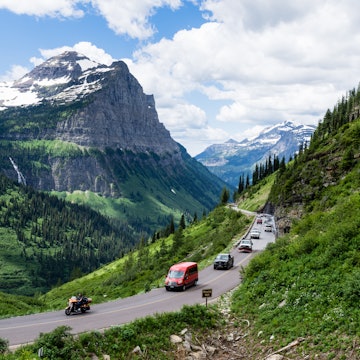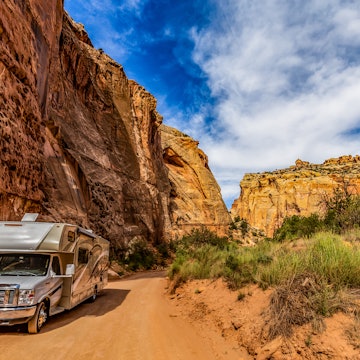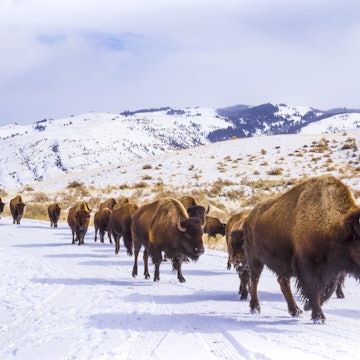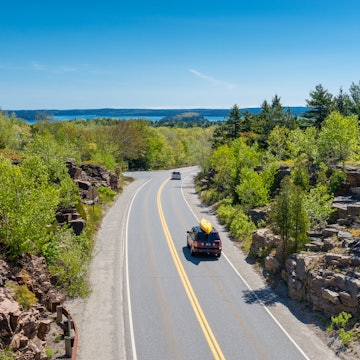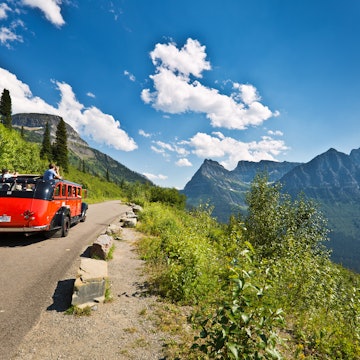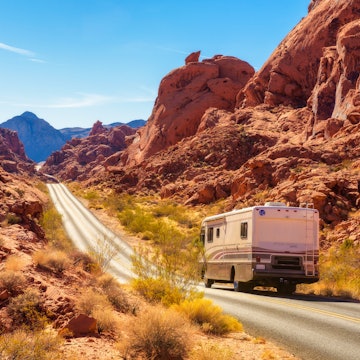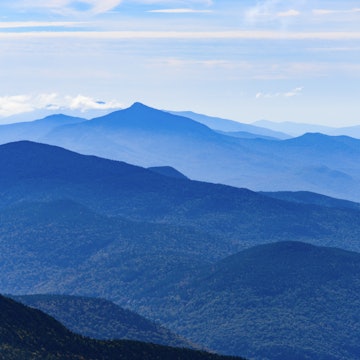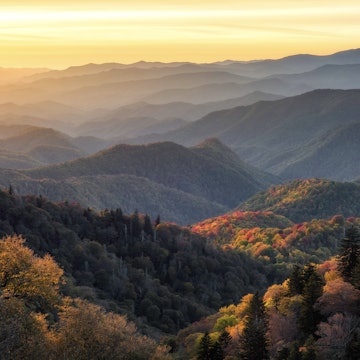
Best national parks in the US for outdoor photography this summer

Jul 27, 2020 • 4 min read

Glacier National Park is like something from a fairy-tale © Feng Wei Photography / Getty Images
This summer is a splendid time to flex those new outdoor photography skills picked up during the height of the pandemic quarantine, when everyone was adopting new hobbies. And national parks are the best place to practice that new pastime.
The parks offer plenty of space for social distancing, and unlike many traditional indoor destinations for summer fun, most parks are actually open. Stop off at the visitors center upon arriving to get the most up-to-date information on COVID-19-related closures. Most parks aren’t giving out paper maps due to virus restrictions, so download maps onto a mobile device beforehand.
Here are eight places to go to get the best pictures, along with some tips for where and what to shoot.

1. Great Smoky Mountains National Park
Great Smoky Mountains in North Carolina and Tennessee features great opportunities for amateur photographers. While parts of the park remain closed, Morton Overlook is open and ready for sunset shots. Approach via Cades Cove Loop Road – for a fun twist, visit the overlook on Wednesday, when the road is open only to pedestrians and bikers this summer.
Tip: Use a wide-angle lens to capture the sun as it dips behind the nearby peaks at the overlook. Also, bring a tripod as the winds can whip up even in the summer, making it difficult to hold the camera steady.
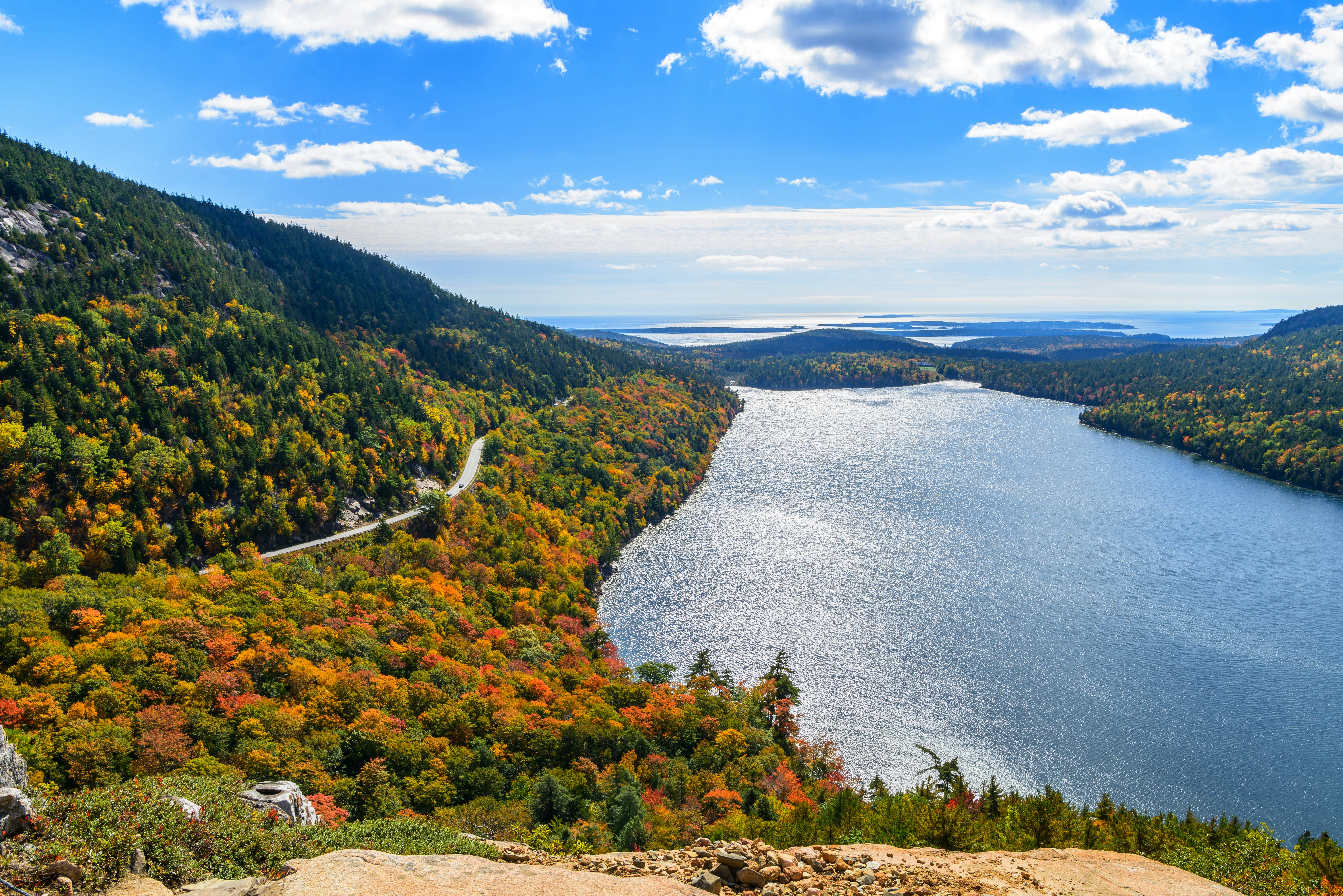
2. Acadia National Park
New England’s only national park is a photographer’s favorite in the fall, but the summer views are equally dazzling at Acadia. Cadillac Mountain is a must at sunrise, as is exploring the carriage roads on foot. The roads include lots of wildlife and stone bridges for different shots.
Plan well in advance for this trip. Maine has a 14-day quarantine in effect for most out-of-state visitors who do not have a recent, negative COVID test.
Tip: Use a polarizer to decrease the glare from water and foliage at Acadia, which has lots of both.
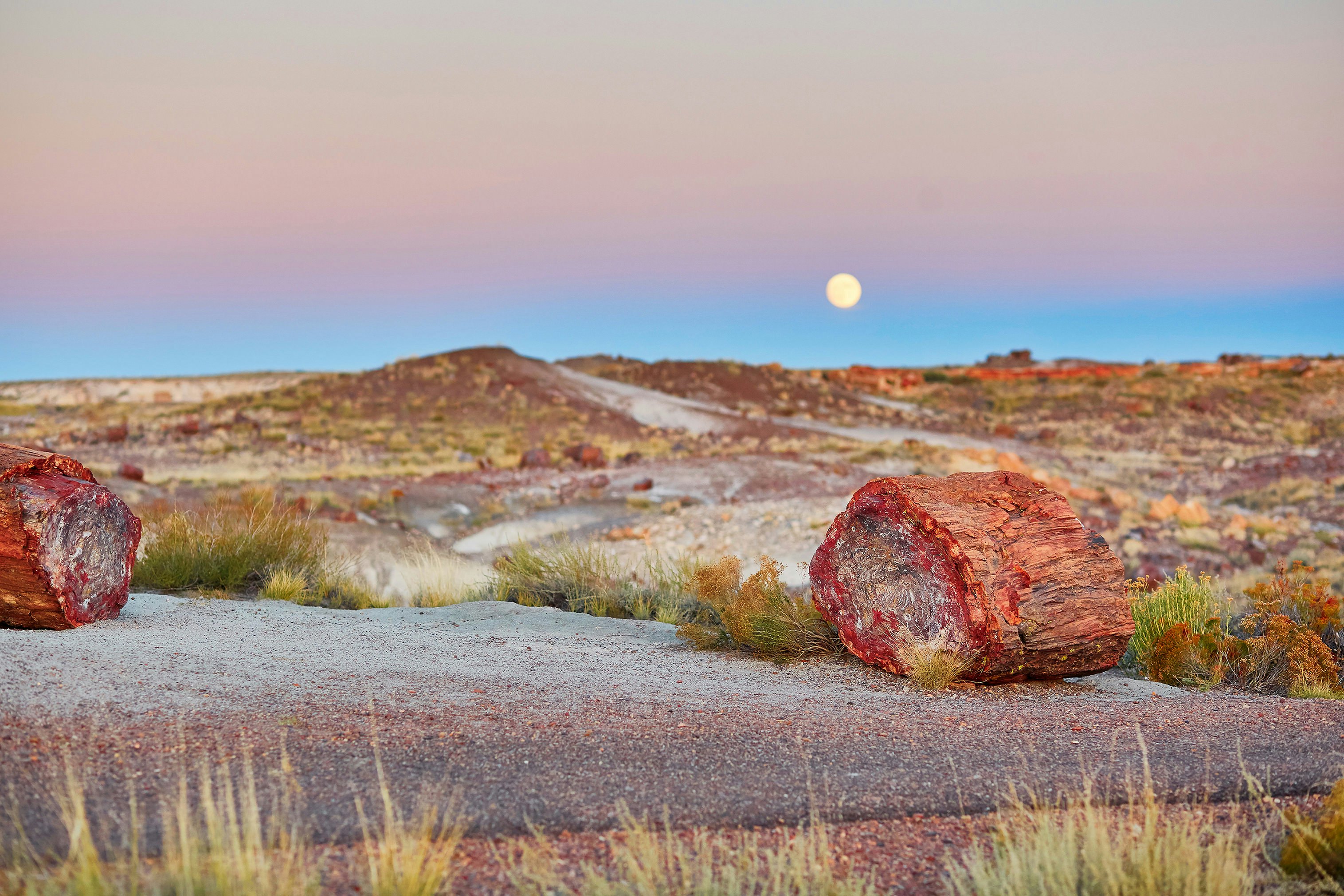
3. Petrified Forest National Park
Petrified Forest in Arizona features a landscape that looks like it belongs in one of the many Jurassic Park remakes – it’s both prehistoric and unexpectedly modern, with the petrified tree trunks contrasting with surrounding badlands. Visitors can catch glimpses of the Painted Desert from several overlooks, too.
Tip: Play with backlighting on the Crystal Forest Trail to keep the trees in the shade while capturing the beautiful colors of the crystals.
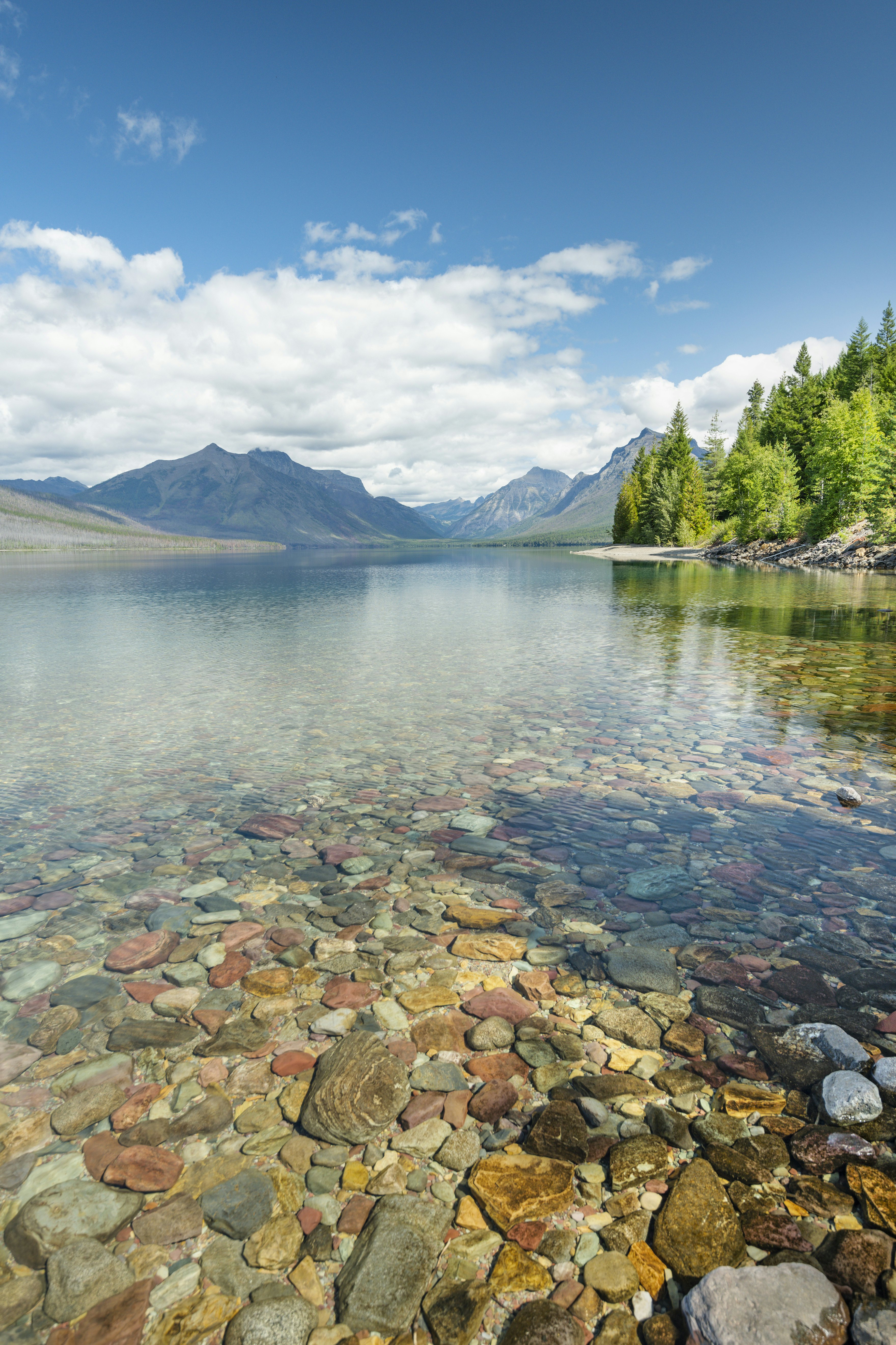
4. Glacier National Park, Montana
People often mention Glacier in the same breath as Yellowstone and Grand Canyon, and with good reason. The Montana park has it all: gorgeous horizons dotted with alpine meadows and forests so picture-perfect they appear straight out of a fairy-tale.
Right now, most of the east side of the park is closed, but visitors can access the west entrance. Take photos at Lake McDonald, where coves offer fantastic angles on the water. Photographers often snap sublime sunset images at the lake, too.
Tip: Skip the ultra-wide lens and bring a more versatile one that can zoom in on wildlife at the lake and zoom out for shots that encompass the nearby mountains.

5. Zion National Park
Part of the Utah Mighty 5 parks, Zion reopened to visitors via shuttle service in early July. Motor vehicles are still prohibited in some areas. Book shuttle tickets in advance to ensure a spot for Zion, which ranks among the five most popular national parks in the country, and little wonder. The stunning sandstone cliffs and views from the canyon below provide grand locations for photography.
Tip: Hikers should bring a lightweight camera, such as a variable aperture zoom, to avoid chafing from a heavy camera carried miles on the trail in a backpack.
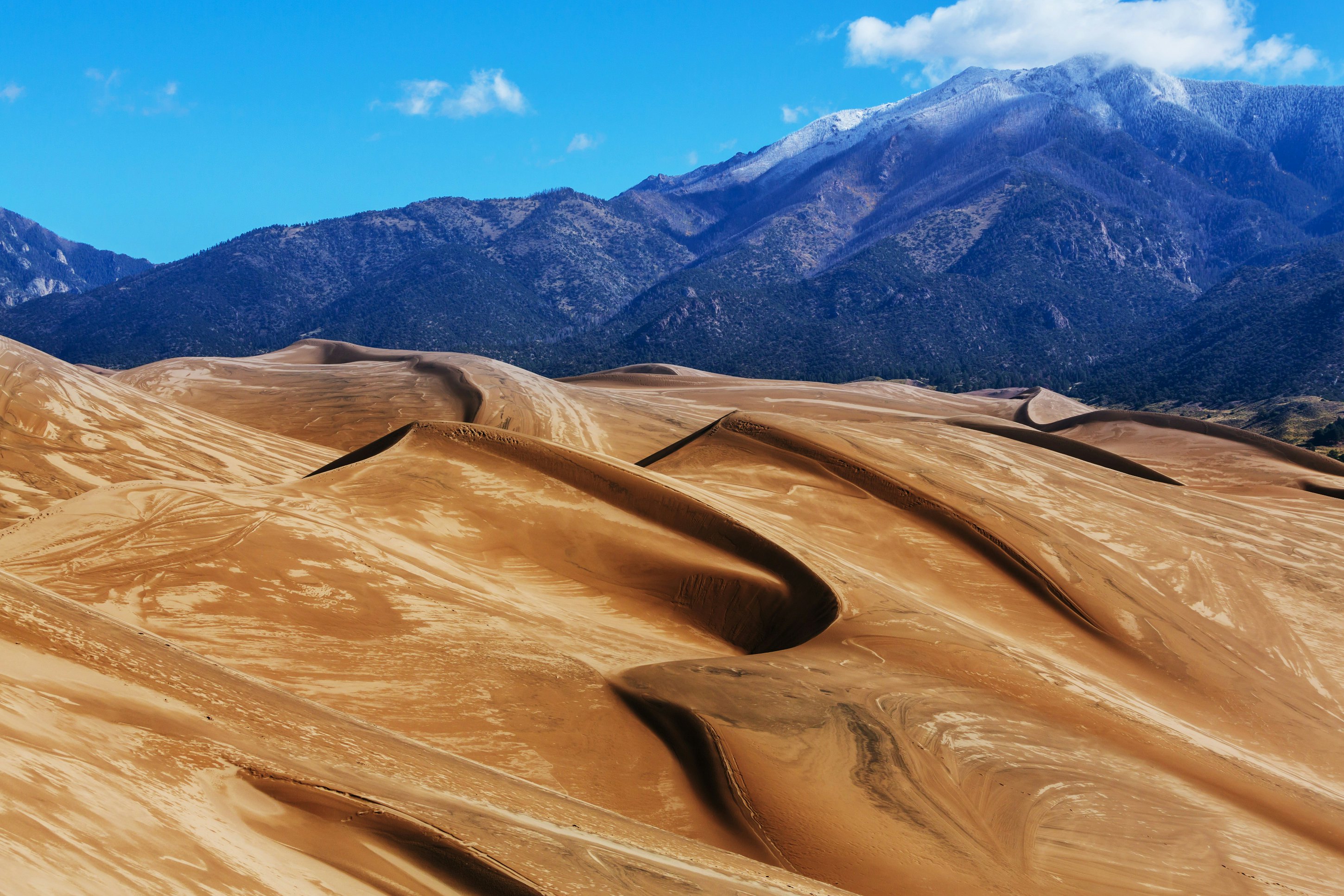
6. Great Sand Dunes National Park and Preserve
Great Sand Dunes in Colorado is open 24/7, so visitors can go exploring in the dark at the park that features North America’s tallest sand dunes. Set out early in the morning, when temperatures are lower, as the sand heats up after noon. Hold off on hiking the dunes during or right after a thunderstorm – shifting sand can be dangerous. Otherwise, few restrictions remain in this wide-open space.
Tip: Hike High Dune, which offers the best vantage point to shoot the other big dunes at the park.
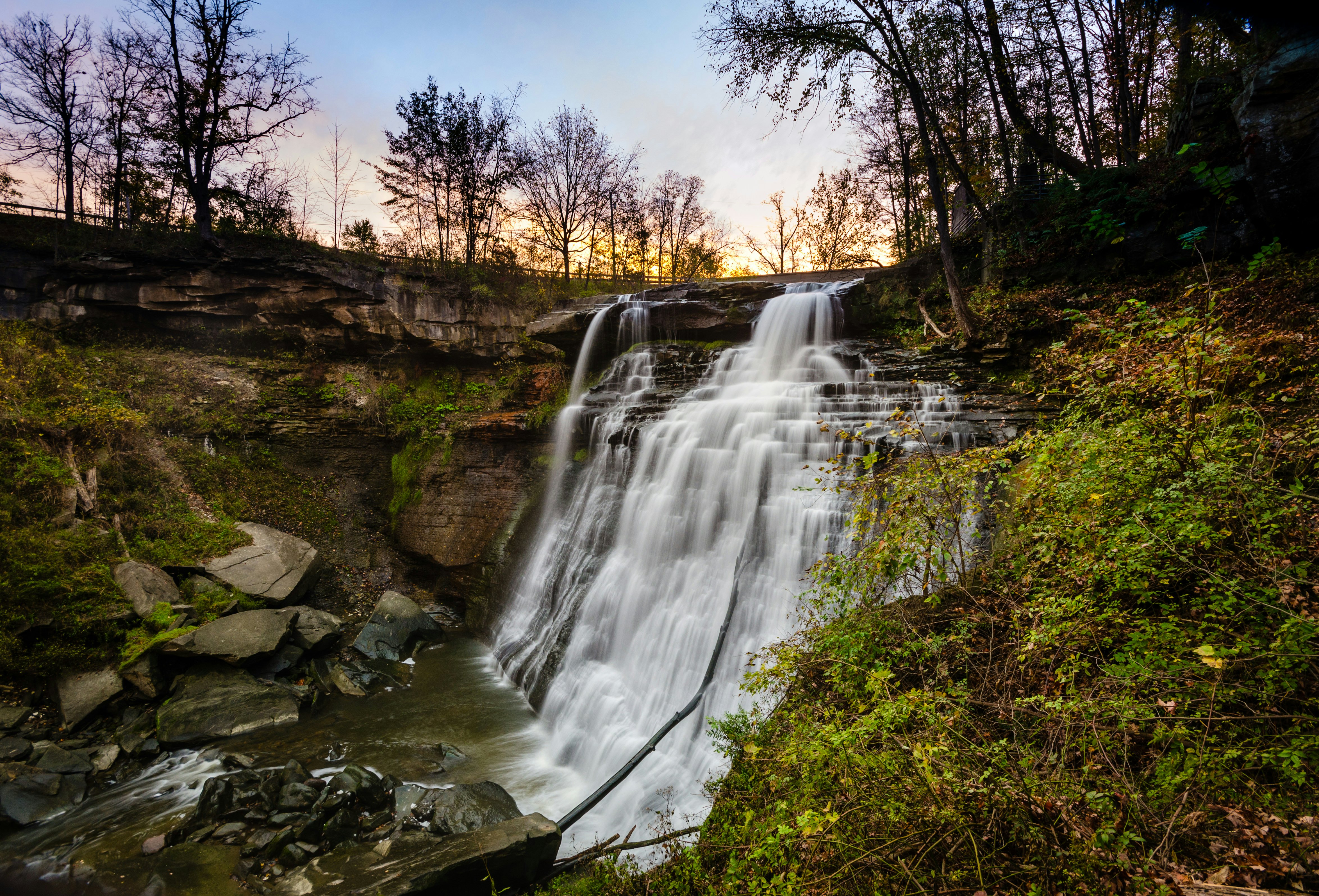
7. Cuyahoga Valley National Park
For those who love waterfall photos, Ohio’s Cuyahoga Valley is the place to go. One of the park’s most popular destinations is Brandywine Falls. Take the 1.5-mile Gorge Trail to the 60-foot falls and watch for hazards – the top and bottom of the falls have some areas closed off this summer.
Tip: Get in a bit of wildlife photography, too, by shooting the salamanders who play in the pools leading to the falls.

8. Shenandoah National Park
Shenandoah covers 200,000 acres, and is known for Skyline Drive, the 105-mile road that winds through its glorious mountains. In spots, visitors can see cloud coverage of the scenery below, a spectacular view that makes for memorable photography. The park service encourages people to pay entry fees electronically right now to avoid exchanging cash, and also to bring their own water and snacks, as concession facilities are closed.
Tip: Check out the rocks at Hazel Mountain Overlook on Skyline Drive (mile 35), which faces east and provides excellent sunrise photography views.
You might also like:
How to take amazing underwater photos
How to photograph Yosemite like Ansel Adams
The USA's top 5 National Wild and Scenic Rivers







